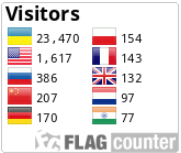CULTURAL CONTEXT OF CHILDREN AND YOUTH’S SELF-ESTEEM FROM THE POLISH – CZECH BORDERLAND
DOI:
https://doi.org/10.28925/2518-7635.2018.3.9Keywords:
self-evaluation, school results, Polish-Czech borderland.Abstract
Self-evaluation is an opinion which is shaped and transformed along with human age. The younger a child is, the more superficial and situational character the self-assessment has. Its level depends on the acquired experience – the cases of success and failure. Moreover, notional thinking develops gradually with the age, changing self-evaluation into an in-depth opinion.
In the text, the research results are presented of self-evaluation of borderland children and youth in the aspect of their self-assessed life achievements in regard to their potentialities (individually specified measure of quality) and the evaluation of school results (socially specified measure of quality). This constitutes a record of the current state and the one nearly 25 years ago, which also takes into account the respondents’ age and residence place. What is comprised here as well are the different dimensions of the young’s self-evaluation and its significance for their spiritual development, which is the essence of education.
Downloads
References
Banaszak, A. (2010). Kształtowanie tożsamości i stylu życia współczesnej młodzieży w kontekście kultury popularnej oraz kapitału społecznego. In: D. Hejwosz, W. Jakubowski (Eds). Kultura popularna – tożsamość – edukacja. Kraków, Polska: Oficyna Wydawnicza ”Impuls”.
Giddens, A. (2010). Nowoczesność i tożsamość. Warszawa, Polska: PWN.
Hejwosz-Gromkowska, D. (2014). Kultura natychmiastowości a (re)konstruowanie tożsamości – wprowadzenie. In: D. Hejwosz-Gromkowska (Ed.). Kultura natych-miastowości a (re)kon-struowanie tożsamości. Poznań, Polska: UAM.
Kabacińska-Łukacz, K., & Ratajczak, K. (2014). Dynamika przemian od społeczeństwa tradycyjnego do ery nowoczesności. In: D. Hejwosz-Gromkowska (Ed.). Kultura natychmiastowości a (re)kon-struowanie tożsamości. Poznań, Polska: UAM.
Matsumoto, D., & Juang, L. (2007). Psychologia międzykulturowa. Gdańsk, Polska: GWP.
Melosik, Z. (2007). Teoria i praktyka edukacji wielokulturowej. Kraków, Polska: Oficyna Wydawnicza ”Impuls”.
Mietzel, G. (2009). Psychologia dla nauczycieli. Jak wykorzystać teorie psychologiczne w praktyce dydaktycznej. Gdańsk, Polska: GWP.
Nowak, S. (1985). Metodologia badań społecznych. Warszawa, Polska: PWN.
Pilch, T. (1999). Pedagogika w poszukiwaniu swoich zadań i roli w budowaniu przyszłości. In: F. Adamski, A. M. Tchorzewski (Eds). Edukacja wobec dylematów moralnych współczesności. Kraków, Polska: UJ.
Wojciszke, B. (2014). Psychologia społeczna. Warszawa, Polska: Wydawnictwo ”Scholar”.
Wojciszke, B. (2010). Sprawczość i wspólnotowość. Podstawowe wymiary spostrzegania społecznego. Gdańsk, Polska: GWP.
Wosińska, W. (2004). Psychologia życia społecznego. Podręcznik psychologii społecznej dla praktyków i studentów. Gdańsk, Polska: GWP.













